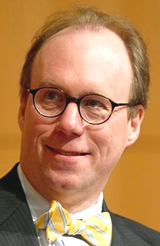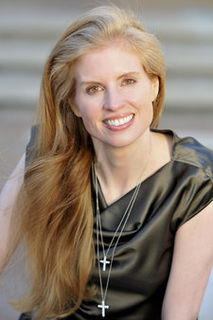A Quote by Elaine Pagels
So often, religion is identified in terms coined by Christianity as sets of belief. But I had the sense that it not only involves practice, but also emotion and levels of our experience that are almost precognitive.
Related Quotes
In France, we have laïcité, which means that atheism is almost our state religion. But I think a very important part of Western culture is in the centuries when Christianism was dominant and was present in almost all works of art - not only liturgical works, but also literature and music. Yes, it's important to have that in our present. It doesn't mean that people have to adhere to a dogma or practice a religion, but it's part of our heritage, and you have to at least try to understand it. Otherwise you can't be a modern person.
I have a sense of them being Easter religions, for some reason. Christianity, of course, is a mystery religion, too, and I believe that Arthur Machen was one of those especially interested in the link between the pagan mysteries and the Christian ones. So, my experience was also a Machenesque experience.
That reality is 'independent' means that there is something in every experience that escapes our arbitrary control. If it be a sensible experience it coerces our attention; if a sequence, we cannot invert it; if we compare two terms we can come to only one result. There is a push, an urgency, within our very experience, against which we are on the whole powerless, and which drives us in a direction that is the destiny of our belief.
No religion is absolutely perfect. Yet not only do we fight for religion, but also are we often willing to sacrifice our lives for it. And what we hopelessly fail to do is to live it. A true religion is that which has no caste, no creed, no colour. It is but an all-uniting and all-pervading embrace.
It is significant that the socialist mentality is usually also an atheistic mentality, where atheism is understood not so much as the disbelief in God as the hatred of God˜an attitude as precarious logically as it has been destructive in practice. There is an important sense in which religion as traditionally understood reconciles humanity to imperfection and to failure. Since the socialist sets out to abolish failure, traditional religion is worse than _de trop_: it is an impediment to perfection.
When we follow the reversal of normal experience, we find ourselves in an unusual, nearly mad experience. Being in an almost mad experience is not something we should fear: only in such experience are we jarred out of our common sense opinions and beliefs. It opens our minds to other ideas and thought. It makes us think.
The most beautiful emotion we can experience is the mystical. It is the power of all true art and science. He to whom this emotion is a stranger, who can no longer wonder and stand rapt in awe, is as good as dead. To know that what is impenetrable to us really exists, manifesting itself as the highest wisdom and the most radiant beauty, which our dull faculties can comprehend only in their most primitive forms - this knowledge, this feeling, is at the center of true religiousness. In this sense, and in this sense only, I belong to the rank of devoutly religious men.
Ninety percent of our lives is governed by emotion. Our brains merely register and act upon what is telegraphed to them by our bodily experience. Intellect is to emotion as our clothes are to our bodies; we could not very well have civilized life without clothes, but we would be in a poor way if we had only clothes without bodies.
Religion, if it is genuine, is so profoundly interwoven with individual thought and experience that it is no more exhaustible than consciousness itself. And fiction whose purpose is didactic is bad no matter whether the matter to be "taught" is Christianity or the world view of Ayn Rand. It seems often to be assumed by writers that religion is a pose, meant to deceive oneself or others, or that it is a bad patch on doubt or complexity. This is only convention, however. The writers I know have a much deeper engagement with the real issues of religion.
That’s what the human brain is there for—to turn the chaos of given experience into a set of manageable symbols. Sometimes the symbols correspond fairly closely to some of the aspects of the external reality behind our experience; then you have science and common sense. Sometimes, on the contrary, the symbols have almost no connection with external reality; then you have paranoia and delirium. More often there’s a mixture, part realistic and part fantastic; that’s religion.
In practice, the goal of skepticism is not the discovery of truth, but the exposure of other people's errors. It plays a useful role in science, religion, scholarship, and common sense. But we need to remember that it is a weapon serving belief or self-interest; we need to be skeptical of skeptics. The more militant the skeptic, the stronger the belief.
Sometimes, after you have taken part in a seven, one or two-day retreat, you could feel that your level of practice had risen. That was because we had given our undivided attention to breaking through our level of practice. We knew that was the sole purpose of coming to a retreat here, so our levels were uplifted and our karma left behind.
Religion is a complex and often contradictory force in our world. It fosters hope and comfort but also doubt and guilt. It creates both community and exclusion. It brings societies together around shared belief and tears them apart through war. However, what unites the faithful, whatever their religion, is the unshakeable force of generosity.
Historically the belief in heaven and the belief in utopia are like compensatory buckets in a well: when one goes down the other comes up. When the classic religions decayed, communistic agitation rose in Athens (430 B.C.), and revolution began in Rome (133 B.C.); when these movements failed, resurrection faiths succeeded, culminating in Christianity; when, in our eighteenth century, Christian belief weakened, communism reappeared. In this perspective the future of religion is secure.







































